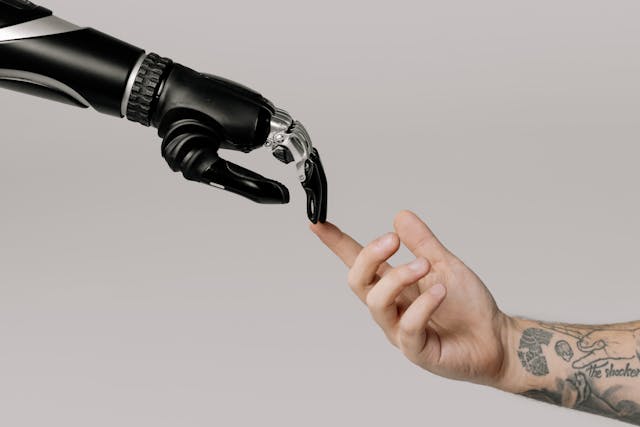A Story of Transformation: How AI Revolutionized HR at a Growing Tech Firm
Three years ago, Sarah, an HR director at a rapidly expanding tech startup, found herself overwhelmed. Managing recruitment, performance reviews, employee engagement, and workforce planning was becoming a logistical nightmare. Despite investing in automation tools, the HR team still faced inefficiencies, lengthy hiring cycles, and disengaged employees.
Then, Sarah’s company implemented Agentic AI in HR—an AI-powered system capable of autonomous decision-making, learning from data, and handling complex HR workflows without constant human intervention. Within months, recruitment time was reduced by 40%, employee satisfaction increased by 30%, and HR processes became significantly more efficient.
Sarah’s experience isn’t unique. Across industries, Agentic AI is transforming HR functions—from hiring and training to performance management and engagement. But what exactly is Agentic AI in HR, and how does it work? Let’s explore.
What is Agentic AI?
Agentic AI refers to AI systems that can autonomously make decisions, learn from interactions, and adapt based on outcomes. Unlike traditional AI, which follows pre-defined rules, Agentic AI mimics human decision-making by:
- Understanding context through natural language processing (NLP)
- Taking actions based on real-time data and historical patterns
- Continuously learning from feedback to improve accuracy and efficiency
For example: In HR, an AI hiring agent doesn’t just screen resumes; it actively learns which candidate profiles lead to successful hires and adjusts its recommendations over time.
How is AI Being Used in HR?
AI is already widely used in HR, with 77% of HR leaders reporting AI adoption in at least one HR process (PwC). The most common use cases include:
✅ Automated resume screening – Filtering candidates based on skills and experience
✅ Chatbots for employee queries – Answering HR-related questions 24/7
✅ Predictive analytics – Identifying attrition risks and workforce trends
✅ Performance tracking – Analyzing employee productivity and feedback
But Agentic AI takes HR automation further by acting autonomously rather than just assisting with data analysis.
What is the Difference Between AI and Agentic AI?
| Feature | Traditional AI | Agentic AI |
|---|---|---|
| Functionality | Follows predefined rules | Makes autonomous decisions |
| Learning Capability | Limited, requires manual updates | Continuously learns and adapts |
| Decision-Making | Provides recommendations | Takes actions based on real-time data |
| Use in HR | Assists HR professionals | Automates and optimizes entire HR processes |
For HR teams, Agentic AI means less manual work and more strategic decision-making.
How Does Agentic AI Work in HR?
1. Agentic AI in Recruitment & Interviews
Challenge: Traditional hiring is time-consuming and biased.
Solution: Agentic AI-powered recruitment agents screen resumes, conduct initial interviews, and even predict a candidate’s cultural fit.
🔹 Example: Unilever uses AI-powered video interviews that analyze facial expressions, tone, and language to assess candidates. This reduced hiring time by 75% (Harvard Business Review).
✅ AI conducts first-round video interviews
✅ AI analyzes responses and predicts job success
✅ AI scores candidates and ranks them for HR teams
2. Agentic AI in Performance Management
Challenge: Traditional performance reviews are subjective and infrequent.
Solution: AI agents provide real-time performance insights and suggest personalized coaching.
🔹 Example: IBM’s AI-driven HR system predicts employee performance with 96% accuracy, helping managers provide better feedback (IBM Research).
✅ AI analyzes work patterns and feedback
✅ AI automates performance appraisals
✅ AI recommends promotions or training
3. Agentic AI in Learning & Development
Challenge: Employees need continuous learning, but HR lacks time for personalized training.
Solution: AI-driven learning agents create tailored development programs.
🔹 Example: LinkedIn Learning uses AI to recommend personalized training courses, increasing course completion rates by 46%.
✅ AI assesses skill gaps and recommends training
✅ AI adjusts learning paths based on progress
✅ AI suggests career development opportunities
4. Agentic AI in Workforce Management
Challenge: Managing shift schedules, project assignments, and workforce productivity is complex.
Solution: AI-powered workforce agents optimize scheduling, task distribution, and workload balancing.
🔹 Example: AI-driven scheduling at McDonald’s reduced staffing inefficiencies by 25%, ensuring the right employees work at the right times.
✅ AI predicts workforce demand
✅ AI automates shift scheduling
✅ AI balances workloads for efficiency
5. Agentic AI in Employee Engagement
Challenge: Employee satisfaction is hard to measure in real-time.
Solution: AI engagement agents analyze sentiment, predict attrition, and improve workplace satisfaction.
🔹 Example: Salesforce’s AI-driven HR bot increased employee engagement scores by 30% by proactively addressing employee concerns.
✅ AI monitors employee sentiment through surveys
✅ AI predicts attrition risks and suggests interventions
✅ AI offers real-time HR support via chatbots
Why Is Agentic AI Being Used in HR?
📊 Statistics Show Its Impact:
- Companies using AI in HR experience a 35% improvement in hiring efficiency (Deloitte).
- Organizations with AI-driven HR see a 50% reduction in employee turnover (McKinsey).
- HR teams using AI spend 40% less time on administrative tasks (PwC).
💡 Key Benefits of Agentic AI in HR:
✅ Efficiency: Reduces time spent on manual HR tasks
✅ Fairness: Reduces bias in hiring and promotions
✅ Accuracy: Uses data to make evidence-based decisions
✅ Scalability: Handles HR processes for large workforces effortlessly
Final Thoughts: The Future of HR with Agentic AI
Agentic AI is not replacing HR professionals—it is augmenting their capabilities. HR teams that leverage AI-powered agents will be able to focus more on strategy, employee well-being, and talent development rather than administrative tasks.
Companies like Unilever, IBM, and Salesforce have already proven the power of AI in HR. The question is no longer if organizations should adopt Agentic AI, but how soon they can integrate it for competitive advantage.
Want to Future-Proof Your HR Strategy?
📩 Contact us today to explore how Agentic AI can transform your HR processes and enhance employee experience! 🚀
